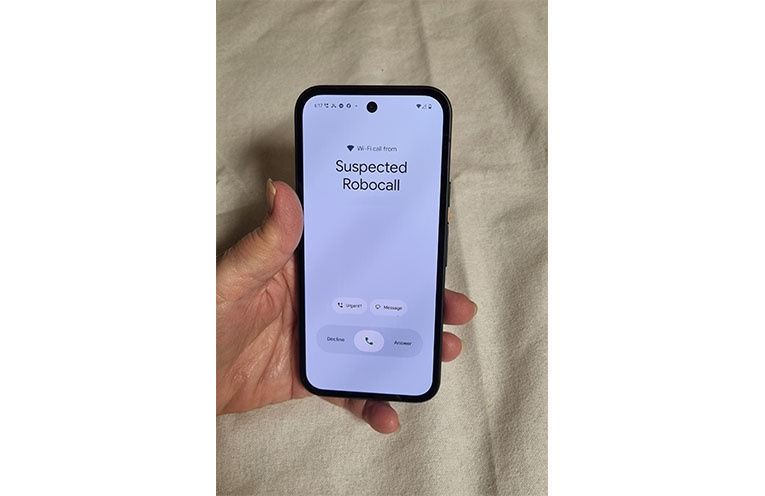
ARTIFICIAL intelligence (AI) is becoming more invasive by the day, with one local businessman receiving unsolicited and deeply concerning robocalls last week.
Tea Gardens indoor/outdoor electrician Wil Davies told News Of The Area that he answered a call from a number that looked genuine but was unknown to him.
“The female voice on the other end asked if I ran a cleaning business,” he said.
“I responded in the negative, then there was a pause before the next question came; this one about my actual business and certain details.
“The accent was Australian, but it asked me if I ran a multinational company, and there was the exact same pause after every response.
“I put two and two together and realised I was not talking to a human at all.”
Mr Davies soon realised that the pauses were, more than likely, processing periods for the AI computer as it received, understood and calibrated a new question based on his responses.
It became an increasing invasion of his privacy.
He rang the incoming number back the next day, only to hear an automated message.
“My phone will usually alert me to ‘potential fraud or scammer,’ but this one did not raise any flags,” Wil said.
According to Telstra, the computerisation of telecommunications has made “spoofing” all-too commonplace.
Now a phone scammer located anywhere in the world can easily falsify their calling number to trick a user into picking up or making a call look more legitimate.
The AI aspect adds another dimension.
AI is capable of “learning” and adapting its behaviour to elicit certain responses, or even mimic real human beings, opening the gates for it to become predatory in its pursuit of information or outcomes.
In February 2024, the US Government officially outlawed AI cold-calling, in part because some groups were using it to mimic then-President Joe Biden during the election year.
The USA’s Federal Communications Commission (FCC) targeted robocalls made with AI voice-cloning tools and restricted junk calls that use artificial and prerecorded voice messages.
The Australian Government is yet to make such a clear legal ruling.
However, AI used for cold-calling is subject to certain legal regulations.
These include the Spam Act 2003, which says that unsolicited commercial messages may only be sent with the recipient’s consent, and the Do Not Register Act 2006, which allows people to register their phone numbers on a system to avoid telemarketing calls.
The lesson is to remain skeptical of any unknown incoming call or message; leave a message asking others to call you back; and be patient with others who may be less technologically savvy.
By Thomas O’KEEFE



